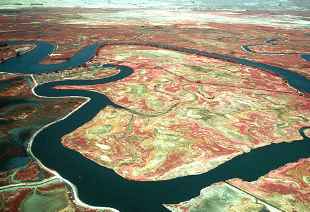Island Civilization.

by Roderick Nash, Ph.D.
Conclusion – divorce; live separately but in harmony, love but to be freed from responsibility.
![]()
“Maybe biocentric ethics and reverence for self-willed nature could turn us from cancerous to caring.”
“Some now view this not just as a violation of the rights of humans to enjoy wild nature but the rights of other species and self-willed environments themselves.”
“Their value was intrinsic and their membership in the biotic communityindisputable.”
“ ‘environmentalism’ took a broader view of utility”
Ibid.
“put our dominion into the realm of morals. It is now in the realm of trade.”
Liberty Hyde Bailey, 1915
“ changing American attitude toward nature.” was manifest in Conservation efforts nationally by 1907.
Ibid.
"celebrated tools of an environmental transformation that left wilderness in scattered remnants."
• "The other important part of the word, "ness," indicates a condition or place. So "wilderness" literally means self-willed land, a place where wild (undomesticated) animals roam and where natural processes proceed unencumbered by human interference."
"This is simply the greatest challenge facing our species, and, in a sense, facing natural world. This is simply the greatest challenge facing our species, and, in a sense, facing evolution on Earth."
Wild | Climate | Biodiversity | nature as an asset | reflecting ecologically | Airs, Waters and Places
